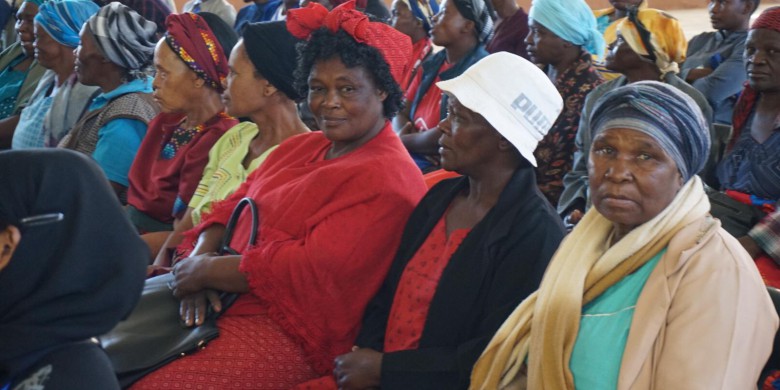
ESWATINI: How regional expertise turns distrust into trust
GPPAC’s South African Regional Meeting was held in Eswatini in May 2019. Despite the dire situation on the ground and shrinking space for civil society in Africa's last absolute monarchy, communities are building peace to prevent a downward spiral into violent conflict. Their efforts are an example of shared best practices in strong regional networks, where local actors are empowered to act as agents of change.
In Eswatini distrust against civil society amongst the population prevails. Organisations are believed to push for secret political agendas in the small country formerly known as Swaziland. The Swaziland Justice and Peace Institut (SJPI), member of GPPAC South Africa, successfully turned distrust into trust in three communities. They initiated a project called ‘’Change agents for peace education and good leadership in Eswatini’’ which involves all members of society. The project focused on dialogue to address grievances on the ground.
Gabriëlla Vogelaar, Training and Capacity Building Coordinator at GPPAC, had the opportunity to experience the impact of the project firsthand when participating in the Regional Meeting in May. ‘’I got to meet the faces behind some of our great work, and see how the change agents project was received by the community’’, she said about her visit with our local members. The project which ended in March 2019 has been praised by the local community. A great achievement considering the challenging task of persuading the gatekeepers of society, the chiefs, before starting the project.
In the monarchy, chiefs represent the king on the local level. The Shiselweni region, where the project was implemented, is characterized by (violent) disputes between the local rulers. With the support of the Ecumenical Church Leaders Forum (ECLF), GPPAC member in Zimbabwe, SJIP organized Conflict Prevention, Management, Resolution, and Transformation (CPMRT) workshops for the chiefs. They acknowledged the benefit of sharing the training which includes tools for conflict analysis, effective listening and communication skills and understanding power dynamics with their wider community.
Gabriella visited the Mahlalini people who participated in a community dialogue on gender issues to understanding power dynamics better. The need to address gender-related issues in the country is big. Gender inequality is high and gender-based violence against women and children common. This is aggravated by strong patriarchial traditions, values, and norms. The dialogue session included space for men and women to speak freely and the sharing of methods for resolving conflict peacefully.
Today, there is growing trust between SJIP and the local population. During Gabriella’s visit, the chief attended a meeting himself. It was a sign that ‘’he acknowledged the great work that SJIP had done for his community’’, she said. The project is a prime example of how regional networks exchange experience and expertise to empower the local population to act as change agents on the ground.
